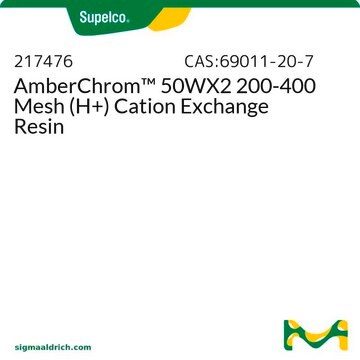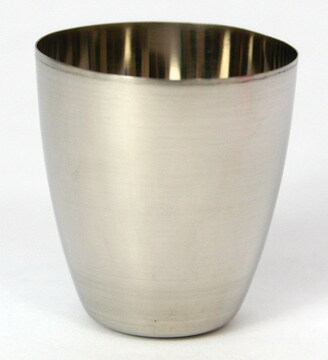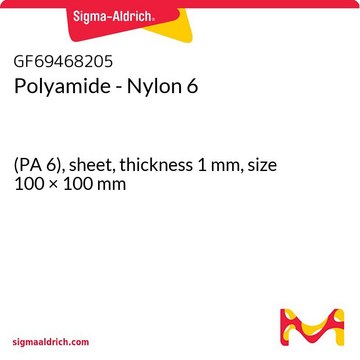추천 제품
무균
Filtered sterilized solution
양식
aqueous solution
분자량
~23.1 kDa
포장
pkg of 2.5 mg
농도
0.5 mg/mL protein
기술
cell culture | mammalian: suitable
결합 특이성
Receptor: α5β1
Domain: III-10
Binding Motif: GRGDSP
배송 상태
ambient
저장 온도
2-8°C
애플리케이션
MAPTrix™ Technology provides a true extracellular microenvironment (ECM) by presenting combinatorial peptide motifs. The ECM, defined by biochemical cues and physical cues, is a deciding factor in a wide range of cellular processes including cell adhesion, proliferation, differentiation, and expression of phenotype-specific functions.Currently existing technology offers simple and merely adequate environments that facilitate simple cell processes such as cellular adhesion. The simple presentation of cell adhesion motifs is not optimal for controlling more integrated processes. Crosstalk among signaling pathways act synergistically to enhance cellular responses such as cell adhesion or proliferation. A study showed that a combination of extracellular matrix derived peptides presented on a surface may enhance cell adhesion strength and focal adhesion assembly. The combinatorial presentation of ECM peptides on cell growth surfaces may also promote elevated proliferation rates of primary or stem cells.
특징 및 장점
- Biochemically-defined, animal-free cell culture surfaces designed to enhance cell performance
- MAPTrix™ produces a uniform ECM surface that provides a highly controlled 2D extracellular microenvironment for cell cultures and related applications
- Adhesion properties of the mussel adhesive protein makes the coating reproducible & reliable
법적 정보
MAPTrix is a trademark of Kollodis Biosciences
Storage Class Code
10 - Combustible liquids
Flash Point (°F)
Not applicable
Flash Point (°C)
Not applicable
가장 최신 버전 중 하나를 선택하세요:
Stephanie J Ellis et al.
Cell and tissue research, 339(1), 121-130 (2009-07-10)
The regulation of stem cell behavior and maintenance typically involves the integration of both intrinsic and extrinsic cues. One such external cue, integrin-mediated cell adhesion to the extracellular matrix, plays an important part in regulating stem cell function and maintenance.
Ying Meng et al.
FASEB journal : official publication of the Federation of American Societies for Experimental Biology, 24(4), 1056-1065 (2009-11-26)
Human embryonic stem (hES) cells are pluripotent, capable of differentiating into any cell type of the body, and therefore have the ability to provide insights into mechanisms of human development and disease, as well as to provide a potentially unlimited
Seung Tae Lee et al.
Biomaterials, 31(6), 1219-1226 (2009-11-21)
We present development and use of a 3D synthetic extracellular matrix (ECM) analog with integrin-specific adhesion ligands to characterize the microenvironmental influences in embryonic stem cell (ESC) self-renewal. Transcriptional analysis of 24 integrin subunits followed by confirmation at the translational
Samuel Schmidt et al.
Cell and tissue research, 339(1), 83-92 (2009-11-19)
Adhesion and migration are integrated cell functions that build, maintain and remodel the multicellular organism. In migrating cells, integrins are the main transmembrane receptors that provide dynamic interactions between extracellular ligands and actin cytoskeleton and signalling machineries. In parallel to
S J Fashena et al.
Nature cell biology, 2(12), E225-E229 (2001-01-09)
Over the past twenty years, intensive research has enabled us to identify components of specific signalling pathways downstream of an array of adhesion and growth-factor receptors. The first Gordon Research Conference on 'Signalling by Adhesion Receptors', which took place in
문서
Extracellular matrix proteins such as laminin, collagen, and fibronectin can be used as cell attachment substrates in cell culture.
자사의 과학자팀은 생명 과학, 재료 과학, 화학 합성, 크로마토그래피, 분석 및 기타 많은 영역을 포함한 모든 과학 분야에 경험이 있습니다..
고객지원팀으로 연락바랍니다.





